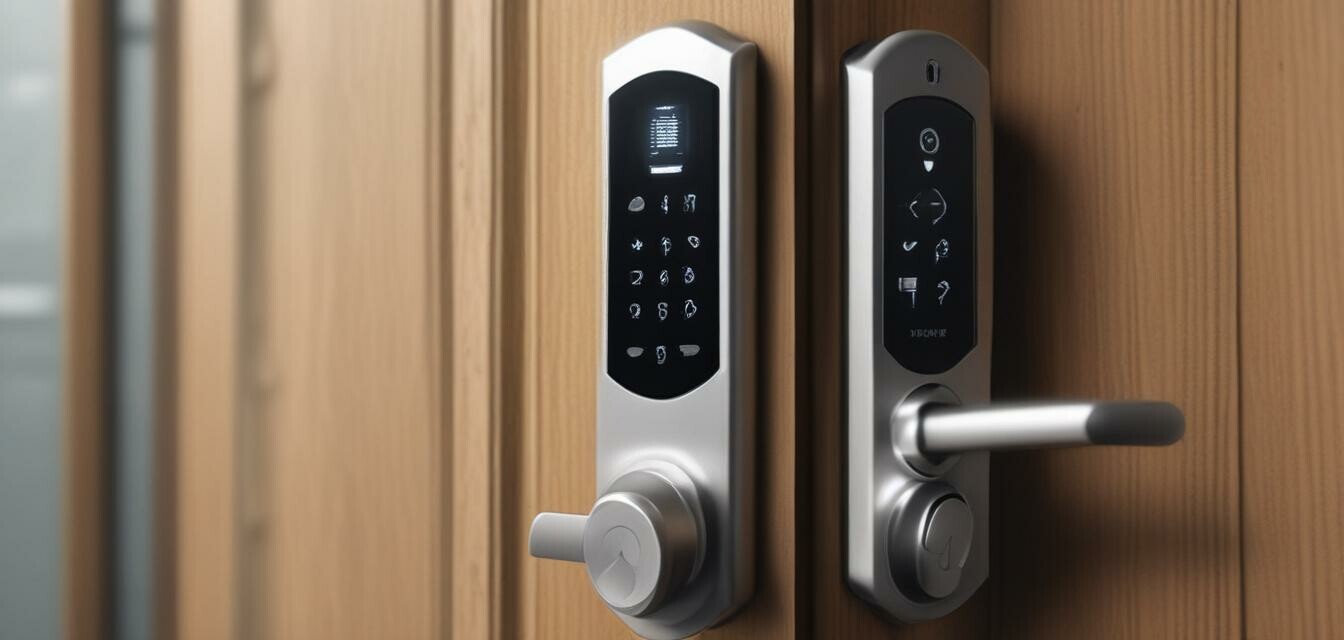
Understanding Smart Locks: Do They Really Work?
Key Takeaways
- Smart locks offer keyless entry options, enhancing convenience and security.
- Features to consider include connectivity, locking mechanisms, and backup options.
- They can integrate with home automation systems for added benefits.
- Smart locks can provide monitoring and alerts for enhanced security.
- Always assess the risks and potential vulnerabilities of smart technology.
As home security becomes increasingly important, many homeowners are turning to technology to enhance their safety. Among the latest innovations are smart locks, which provide a blend of convenience and security. But do smart locks really work as advertised? In this article, we will dive deep into smart lock technology, exploring their features and benefits, as well as assessing any potential drawbacks.
What are smart locks?
Smart locks are electronic locks that can be controlled remotely via smartphones, tablets, or other devices. These locks eliminate the need for traditional keys, offering users the ability to lock and unlock their doors from anywhere. Smart locks can vary in features, but most allow for keyless entry options, such as fingerprint scanning, numeric keypads, or mobile app control.
How do smart locks work?
Smart locks operate using various technologies, which allow users to secure their homes in innovative ways. Here are some of the main components:
| Technology | Description |
|---|---|
| Bluetooth | Allows users to unlock the door from their smartphone when in proximity. |
| Wi-Fi | Facilitates remote access and control over the internet. |
| Zigbee/Z-Wave | Wireless protocol that connects devices within a smart home network. |
| Fingerprint Scan | Secures the door using biometric data from the user’s fingerprint. |
Benefits of smart locks
Smart locks come with numerous advantages that make them appealing for homeowners:
- Convenience: No need to fumble for keys; access your home with a smartphone or keypad.
- Remote access: Control your lock from anywhere at any time.
- Monitoring: Receive notifications when someone enters or exits your home.
- Customization: Create temporary access codes for guests or service personnel.
- Integration: Connect smart locks with home automation systems for enhanced security features.
Common features of smart locks
When choosing a smart lock, it's important to consider the various features that each model offers:
| Feature | Description |
|---|---|
| Keyless Entry | Access without traditional keys using PINs, smartphone apps, or biometrics. |
| Remote Control | Lock or unlock the door from anywhere through a mobile app. |
| Access Logs | Track who enters or exits your home and when. |
| Integration with Other Devices | Work with other smart home gadgets, such as cameras and alarms. |
| Emergency Backup | Manual key access or backup options in case of technology failure. |
Potential drawbacks of smart locks
While smart locks offer many advantages, there are also some potential drawbacks to be aware of:
Pros
- Enhanced convenience with keyless entry.
- Improved monitoring and security options.
- Flexible access control features for guests.
Cons
- Risk of hacking or technical malfunction.
- Dependence on battery life; may require replacements.
- Possible compatibility issues with existing home systems.
Integrating smart locks with home automation
Smart locks can be part of a larger smart home ecosystem. Here’s how they work with other devices:
- Security Cameras: Monitor your door entry points along with the smart lock functionality.
- Smart Doorbell Cameras: Get alerts and see who is at the door even when you are not home.
- Alarm Systems: Set off alarms when unauthorized access is detected.
Do smart locks really work?
The effectiveness of smart locks depends on various factors, including the technology employed, the security protocols in place, and the user's understanding of how to maximize their features. Smart locks can indeed enhance home security, but users must remain vigilant about potential vulnerabilities.
Conclusion
Smart locks represent a step forward in home security technology, providing both convenience and enhanced protection. By understanding their features, potential drawbacks, and benefits when integrated into a smart home, homeowners can make informed decisions about whether smart locks are the right choice for their security needs. To further explore home security options, consider reading our informative guides on [CCTV Systems](/products/cctv-systems) and [Wireless Security Cameras](/products/wireless-security-cameras).
Further Reading
For more insights on home security, check out our other blog categories:
